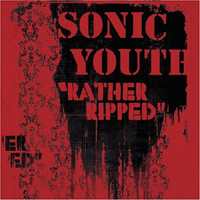 Mike Powell cites Stephen Malkmus and Donna Summer as examples of how being "open-minded" about music allows you to experience the pleasures of their "emotional disconnect." But do Malkmus and Summer project emotional disconnection? It's more a distrust of emotion, or better, a distrust of the modes of discourse available to musicians for the expression of emotion. The key Pavement lyric (there are certainly reams from which I can cite) for me is in 1999's "Major Leagues," a ballad which uncurls with the limpid grace of koi in a pond, the pigtailed little sister to Public Image Ltd's "This Is Not a Love Song": "You kiss like a rock/But you know I need it anyway." This distrust (if not disgust) is a trope most canonical figures have used in some form; think of all the idiot winds Dylan has blown since "Love Minus Zero" or "It Ain't Me Babe"; or the contempt Mick Jagger shows his factory girl; or the narrator of a certain Pet Shop Boys tune admitting "I love you/you pay my rent."
Mike Powell cites Stephen Malkmus and Donna Summer as examples of how being "open-minded" about music allows you to experience the pleasures of their "emotional disconnect." But do Malkmus and Summer project emotional disconnection? It's more a distrust of emotion, or better, a distrust of the modes of discourse available to musicians for the expression of emotion. The key Pavement lyric (there are certainly reams from which I can cite) for me is in 1999's "Major Leagues," a ballad which uncurls with the limpid grace of koi in a pond, the pigtailed little sister to Public Image Ltd's "This Is Not a Love Song": "You kiss like a rock/But you know I need it anyway." This distrust (if not disgust) is a trope most canonical figures have used in some form; think of all the idiot winds Dylan has blown since "Love Minus Zero" or "It Ain't Me Babe"; or the contempt Mick Jagger shows his factory girl; or the narrator of a certain Pet Shop Boys tune admitting "I love you/you pay my rent."
When I was 18 I wanted to be Bryan Ferry. There is a sense in which loving Bryan Ferry meant attempting to become the Love God that Ferry himself couldn't hope to be (a lot like loving Cary Grant, I'd argue). Liking Ferry also meant noting the abyss between himself and the guilelessness of Otis Redding and Sam Cooke. Mike notes this phenomenon in Donna Summer's "I Feel Love":
Donna Summer didn’t pretend to be cool, she sort of pretended to be hot. And she was hot. But she was more like Kim Gordon, in that sense: sounding so unbelievably passionate that you, well, didn’t exactly believe her
Before Ferry discarded irony as one more mode of discourse he distrusted – when on songs like 1980's "Over You" he sort of pretended to be cool – his insincerity signified his willingness to believe in the emotion behind the expression while maintaining a wary distance from both. I don't know how else to describe what he does on 1972's "If There is Something," in which he declaims lines "I'll put roses 'round your door, sleep in the garden/growing potatoes by the score" like The Count in "Sesame Street." I suspect he wrote and sang like this because he couldn't hope to match Otis and Sam; but so what, right? In wanting to have it every which way he confused the hell out of me, and it was wonderful, especially for the gay man I wasn't quite yet. As an ineffectual heterosexual I emulated Ferry's sincere insincerity in my relations with women, but especially with men; it worked as an ideal subterfuge, acting camp to defuse growing suspicions among the guys about my real tastes.

I crushed on Malkmus almost as hard as I did Ferry, but for all his syntactical games and abstruse Ashberyian wordplay he was a lot more human – if by "human" we mean willing to discard said games when your audience blinks confusedly. I've known plenty of guys like him: cute in a scruffy way, his heterosexuality as comfortably rumpled as the argyles he probably wears to prove he's suburban prep underneath it all. It helped that he was a better singer and guitarist than Ferry was a singer and keyboardist. Moreover, he was always more comfortable playing the Love God than Ferry was in 1972; note his skill at crafting slowies like 1992's "Here" or last year's "Freeze the Saints," which for direct expression are at least as good as the protracted ambivalences of "Gold Soundz."
Emotional disconnection/distrust works in art, less so in life.








